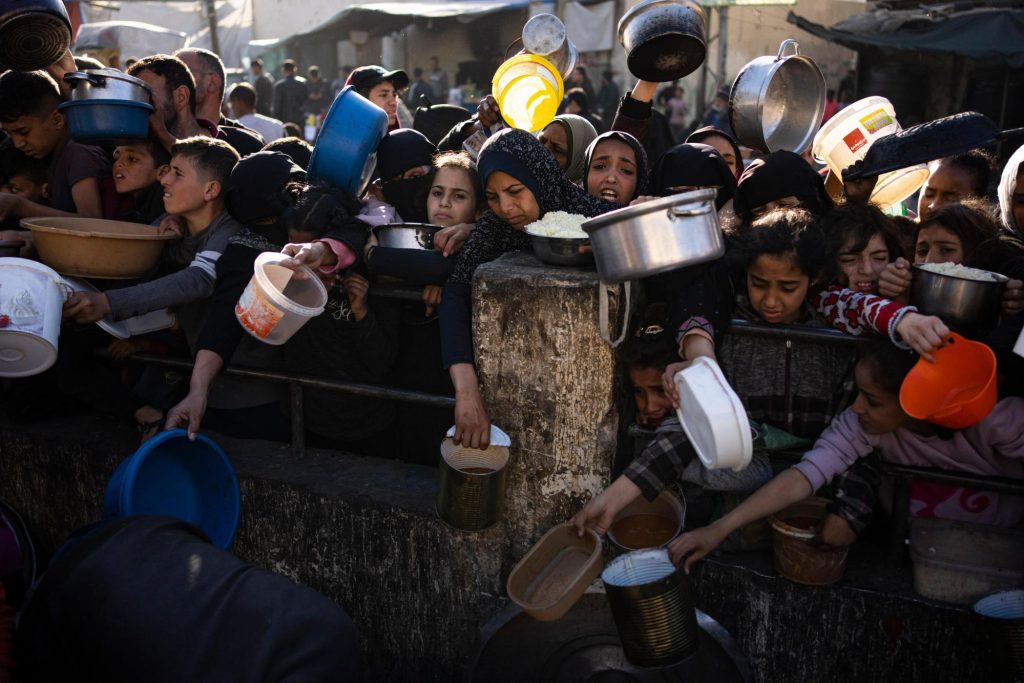By TIA GOLDENBERG (Associated Press)
TEL AVIV, Israel (AP) — The Israeli military said on Wednesday that it intends to relocate a large portion of the 1.4 million displaced Palestinians living in Rafah, the southernmost town in the Gaza Strip, to "humanitarian islands" in the middle of the region ahead of its planned operation in the area.
The situation of the people in Rafah has been a major concern for Israel's allies, including the United States, and humanitarian organizations. They fear that an attack in the densely populated area would be a disaster. Rafah is also the primary entry point for much-needed assistance in Gaza.
Israeli Prime Minister Benjamin Netanyahu has stated that an operation in Rafah is essential to achieve Israel's goal of eliminating Hamas after the Oct. 7 attack, which resulted in the deaths of about 1,200 people, mostly civilians, with around 250 taken as hostages and brought into Gaza. Israel's invasion of Gaza has resulted in over 31,000 deaths, according to Gaza health officials, left a large part of the enclave in ruins, and displaced around 80% of Gaza's 2.3 million inhabitants.
Israel’s chief military spokesman, Rear Adm. Daniel Hagari, said that moving the residents of Rafah to the designated areas, in coordination with international actors, is a key part of the military's preparations for the anticipated invasion of Rafah. Israel aims to destroy the four battalions that Hamas is said to maintain in the region.
Rafah has grown significantly in recent months as Palestinians in Gaza have fled from fighting in almost every other part of the territory. The town is now filled with tents.
“We need to ensure that 1.4 million people, or at least a significant number of them, will relocate. But where? To humanitarian islands that we will establish with the international community,” Hagari told reporters during a briefing.
Hagari stated that those islands would offer temporary shelter, food, water, and other essentials to the evacuated Palestinians. However, he did not specify when the evacuation of Rafah would take place or when the offensive would begin. He mentioned that Israel wanted the timing to be operationally appropriate and coordinated with neighboring Egypt, which has expressed a desire to avoid an influx of displaced Palestinians crossing its border.
At the beginning of the conflict, Israel directed evacuees to a section of undeveloped land along Gaza’s Mediterranean coast, which was designated as a safe zone. However, aid groups reported that there were no concrete plans in place to accommodate large numbers of displaced people there. Israeli airstrikes also targeted that area.
More than 31,270 Palestinians have been killed in Gaza, and most of its 2.3 million inhabitants have been displaced from their homes, according to Gaza’s Health Ministry. The ministry does not distinguish between civilians and combatants in its count, but states that women and children make up two-thirds of the casualties.
Israel attributes the high civilian death toll to Hamas because the militant group engages in combat in densely populated, residential areas. The military has claimed to have killed 13,000 Hamas fighters, but has not provided evidence to support this.
The U.S., Canada, and the E.U. have all labeled Hamas as a terrorist organization.
In the meantime, there was ongoing fighting in various parts of Gaza. On Wednesday, an Israeli attack struck a food distribution site in southern Gaza managed by UNRWA, the U.N. agency that assists Palestinian refugees, resulting in the death of one agency staff member and injuries to 22 others.
The death brings the total number of agency workers killed during the past five months of fighting to 165, according to UNRWA.
Gaza’s health authorities reported that five individuals in total were killed in the attack on the yard of a warehouse belonging to UNRWA.
Hagari mentioned that the army was investigating the report.
The conflict has caused a humanitarian crisis leading to increased hunger. The delivery of aid has been hindered by Israeli restrictions, the ongoing hostilities, and the breakdown of order within Gaza, as per the United Nations. Israel denies imposing restrictions on aid entry.
The situation has been especially dire in northern Gaza, which was the primary target for Israel during the early weeks of the war.
Hagari stated that Israel intends to increase aid distribution extensively in the area, with plans to enhance the entry of goods from multiple points in northern Gaza. A pilot program saw six trucks delivering aid from the north on Tuesday. However, he did not specify the anticipated number of additional trucks or their frequency of entry.
Hagari also mentioned that representatives from the U.S. military are expected in Israel this week to further coordinate the construction of a U.S. floating pier off the coast of Gaza, which he deemed as “significant” for northern Gaza.
In recent weeks, the U.S. and other countries have been airdropping food into northern Gaza to help address the crisis. Aid organizations have indicated that air drops and sea shipments are notably less efficient and effective compared to delivering food via truck.
___
Find additional AP news on Israel-Hamas war at https://apnews.com/hub/israel-hamas-war









